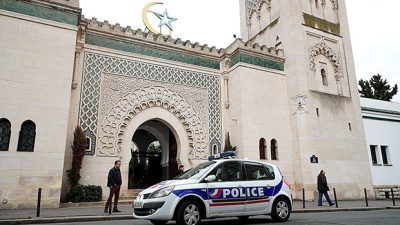Christchurch Shooting: Why Are We Not Using the Word Islamophobia?

Make no mistake, it was not just one man and his gun that killed 50 innocent worshippers in Christchurch, the whole Islamophobia industry had its finger on that trigger too – and yet, in much important commentary about the terrorist attack in Christchurch, the word Islamophobia is often missing.
Yes, it is true that Islamophobia is deeply connected with racism and xenophobia but unless we acknowledge its specificity in the mode of operation and the group of people it targets, we won’t be able to fulfil our moral responsibility to tackle it.
Islamophobia is an industry intent on demonisation of Islam and silencing Muslim voices, especially when those voices seek to claim their rights or speak on behalf of their own interests in the public sphere.
It really is important for us to understand that Islamophobia is more than just an uninformed fear of Muslims or harsh talk; Islamophobia is a systematic and institutional form of racism.
It is the not-so-random checks at the airport – the type that led to the racial profiling of two hijab-wearing Christchurch Muslim sisters at the Brisbane airport in 2015. It is the policing and surveillance of the Muslim community. It is asking Muslims to apologise for crimes they did not commit. It is assuring people that a certain individual is “a good Muslim” – as if Muslims in general are bad people. It is the Muslim travel ban and the call for Muslim registry in the US. It is when merely speaking Arabic is mistaken as an extremist threat.
We need to talk about Islamophobia and bring attention to the orientalist representation of Muslims in the media and pop culture.
Jack Sheehan, an expert in Islamophobia, says Muslims are often reduced to the three Bs: Billionaires, Bombers and Belly dancers.
This crude stereotypical representation of Muslims has been crafted to create the idea of the “Muslim threat” and to provide the ideological justification for repeated military incursions in the Middle East.
Islamophobia industry exists because the dehumanisation of Muslims serves specific political and economical goals. How else would we tolerate the killings of innocent children caught up in endless wars in the Middle East? How else would we tolerate the captivity of two million Palestinians (almost half of them children) in a small strip of land called Gaza?
The fact is that the false assumption that Muslims are inherently violent, and therefore more used to chaos and death, desensitises us to their plight.
US President Donald Trump‘s anti-Muslim rhetoric has done enormous damage by normalising the language of hate against Muslims – but there is no doubt that the world media has also played a role in encouraging anti-Muslim attitudes.
For instance, front-page provocative stories such as “Call for national debate on Muslim sex grooming” associate Islam with a heinous crime despite the fact that none of the perpetrators cited Islam as their motive and there is nothing in Islam that could possibly justify such a despicable act.
Viral false social media posts also contribute to creating a prejudiced attitude towards Muslims. The latest of such posts claimed that Muslims wanted to change the school curriculum in the UK to exclude the teaching of the Holocaust.
No wonder Islamophobia is on the rise.
Encouraging the narrative of Muslims as the “other” manifests itself in growth in hate crimes.
Even in peaceful Christchurch, every Muslim knows someone who has been subjected to Islamophobic hate or abuse.
So what can we do?
We need to fully understand the complex actors, institutions and networks that contribute to Islamophobia.
In my own industry, I see a need for the media to educate themselves about a subject that is often in the news.
A greater diversity in our newsrooms and strengthening legislation against harmful forms of speech will prevent the media from becoming an instrument of hate.
We also need to encourage Muslims to stop becoming passive consumers of news and actively participate in crafting their own stories.
If we learned anything from the Christchurch mosque attacks, it is that daily smears and group libels have deadly consequences.
All people of goodwill have a responsibility to speak out and hold accountable those who seek to divide us by demonising others.
To paraphrase the great Dr Martin Luther King, dignity, equality and freedom denied to one group is a threat to us all.
*
Note to readers: please click the share buttons below. Forward this article to your email lists. Crosspost on your blog site, internet forums. etc.
Donna Miles-Mojab is an Iranian-born Kiwi freelance writer.
Featured image is from Hollywood Life

